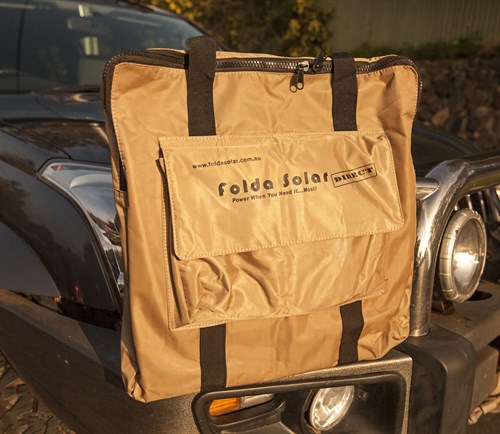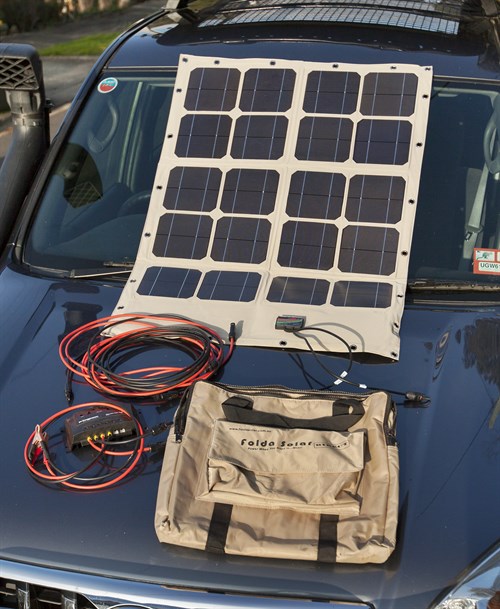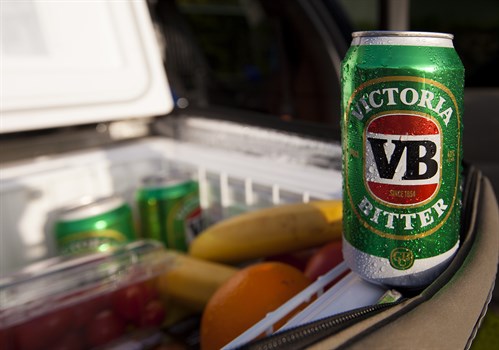We take for granted the comfort portable refrigeration provides, especially in some of Australia’s harshest climates. We’ve all been there; after a day’s fishing or bushwalking we reach into the camper fridge for a cold beer only to find that the magic has stopped — warm beer, limp lettuce and spoiled meat make for very unhappy campers.
If you like to travel remotely and stay in places where you can pretend there’s nobody else on the planet, it’s just not possible to plug into the 240V mains when the batteries start to fade.
Most modern compressor fridges are extremely efficient, but power usage can vary dramatically depending on the style of portable fridge and how you use it. For example, a fridge running as a freezer uses about two and a half times the power as it would running as just a fridge.





Convenience also comes at a cost, and chest style fridge/freezer combination units have a power usage that’s right up there with dedicated freezers. Upright models are less efficient than chest types due to the way they are engineered and might use 50 per cent more power than their counterparts.
BEAT THE HEAT
SOLAR POWER
To find out more about solar panels look at CTA’s July 2014 "Radiation Therapy" feature. However, as a quick guide: A 60L freezer might need the support of a solar system with an output of about 8A — a 40L fridge needs about 3A.
Solar panel output is impacted by extremes of temperature (both hot and cold), and the angle of the sun, shade and cloud. So when calculating power requirements, just remember you can never have too much solar capacity. I have a minimalist approach to camping and try not to lug around anything I don’t need. I can comfortably live out of a 40L fridge for a week and, as I generally use my vehicle every day, I rarely have a problem with battery charge.
On a recent trip in the middle of summer, when I knew the 4WD wasn’t going to be used for a few days, I decided to buy a solar panel. I wasn’t keen on folding aluminium frame panels because they were big and heavy (about 15kg) and looked fragile. Another option was amorphous panels that can just be rolled up — neither heavy or fragile but very expensive. In my search for options I came across Folda Solar who sell a range of panels including one model comprising solar cells mounted on a padded canvas backing that folds up like a road map.
I opted for the smallest unit (70W), and it has proved adequate in keeping my auxiliary and single camper battery charged during extended periods in the north-west of WA. The panels fold up like a road map to just 400mm square and 25mm thick. Packed into their carry bag with the controller and all connections they weigh in at under 5kg. At $549, and Australia-wide free freight, the Folda Solar unit was cheaper than other folding panels I considered at the time, and half the price of an amorphous panel. It’s a unit I’d highly recommend.
FREEZERS
If you also run a freezer when camping it needs special management when relying on 12V. Make sure the freezer is completely full (add plastic bottles of water if it’s not), run it as cold as possible during the day (relying on solar) and turn it off at night. While the temperature in the freezer will rise overnight it will still be minus something by morning, when solar can take over again.
Anyone running a combination fridge/freezer unit has a problem because it’s not realistic to turn it off overnight. Larger battery storage may be the only answer.
HIRING A CAMPER
Finally, a tip for anyone planning to hire a camper — check out the size of its battery storage and see if the supplier also hires out solar panels. On an extended trip in the Kimberley last year I hired a 4WD camper with an upright fridge supported by a single battery which struggled to last 24 hours from a full charge. The designers clearly assumed the camper would be tethered to 240V each night — something just not possible in the remote Kimberley. Next time I’ll be sure to pack my portable panels in my luggage.
Read more CTA handy helpful camping tips.
If you don't want to miss out on all the latest news and reviews, why not subscribe to the monthly CTA magazines.
Find a top rated holiday park to stay in the Tropics!




